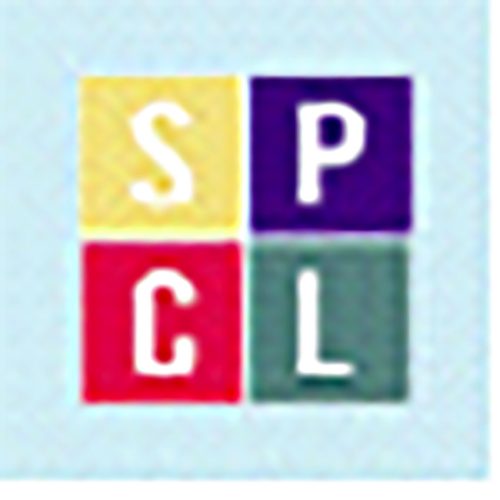[Today we highlight the forthcoming international Linguistics Conference which will be hosted by the University of Guyana’s Department of Language and Cultural Studies within its Faculty of Education and Humanities on August 5 – 9, 2024. It is the joint meeting of the Society for Caribbean Linguistics and the Society for Pidgin and Creole Linguistics and is an extremely high ranking forum for these studies globally.
Alim Hosein, a linguist at the University of Guyana, has served variously as Dean of Faculty and Head of Department. He has published several articles and is a well known contributor to this column.]
The University of Guyana, through its Department of Language and Cultural Studies in the Faculty of Education and Humanities, will host the 2024 conference of the Society for Caribbean Linguistics (SCL). This conference will be held jointly with the Society for Pidgin and Creole Linguistics (SPCL) starting on August 5 and concluding on August 9. The theme of the conference is “Looking Back and Moving Forward: Innovations in Language Theory, Policy and Practice.” Pidgins and Creoles are spoken in many areas around the world, mainly in the Caribbean, Africa, Asia and the Pacific, but they also exist in many other places, even in the United States of America. Historically, pidgins, creoles and other contact languages have been marginalised, even though millions of people speak them as their first languages.
The conference will hear and discuss presentations on many aspects of these languages, and others such as the Indigenous languages of Guyana and additional languages of the Caribbean. The themes for the conference cover a wide range, including digitisation of our heritage languages, language endangerment and death, language and music, language policy, forensic linguistics, attitudes to languages, language histories, virtual language museums, translation and interpretation, among other subjects. This shows that the conference will deal not only with technical matters of grammar and language use, but also address language issues which are critical to national development, such as education, literacy, economic development, cultural identity and heritage, migration and diasporas, inclusiveness, and empowerment, among other things.
The conference will also include feature addresses, workshops, a language survey, a celebration of outstanding Guyanese linguists, exhibitions at the university’s Turkeyen campus and two field trips in Berbice.
Although the conference is intended for specialists in Linguistics, persons who are interested may register to attend individual sessions. Details about the conference and the registration fees are available at https://scl-online.net/Conferences/2024/index.htm . It is important to clarify that focusing on pidgin, creole and Indigenous languages does not mean the exclusion or sidelining of English or any other global language. These languages, which reflect the worldwide imperialistic system, are important for global connection. But the point is that these languages are not the only conveyors of knowledge, and they are not the only means by which human beings express their humanity. In fact, they are not innocent transmitters of information but have had destructive effects on other languages and peoples. The recognition, understanding and empowerment of our own mother tongues – which in the Caribbean are overwhelmingly creole languages – is therefore critically important for us. Recognition of mother languages is a basic human right that must be respected. Apart from this, there is enough evidence from research to show that pidgin, creole and Indigenous languages are worthy languages which are as grammatical and multiplex as any other languages.
This conference is therefore of enormous relevance to us in Guyana and the Caribbean for many reasons, some of which will be outlined below. This region is one of the major creole-speaking areas of the world. There are over 20 creole languages in the Caribbean, including Kreyòl Ayisyen (Haiti), Papiamentu (Aruba, Bonaire and Curaçao), Kwéyòl (St Lucia) and the many English-related creoles such as Bahamian (Bahamas), Bajan (Barbados), Patois (Jamaica), Trinidadian Creole, and Creolese (Guyana), and those of Antigua, Grenada, St Kitts, among others. There are also other creole languages in this hemisphere, including Sranan (Suriname), Belizean (Belize), Guyanaise (French Guiana), Palenquero (Colombia), Nicaraguan Creole English (Nicaragua) and even Gullah and Louisiana Creole in the United States. Apart from these, there were others that are now extinct, such as Berbice Dutch and Essequibo Dutch right here in Guyana. This conference will therefore place major focus on this region.
With the increased pace of globalisation, it is important that the roles, functions and value of pidgin, creole, and Indigenous languages are recognised. Global imperialism since the 1500s has spread the languages of dominating European countries as a means of eroding the value of other cultures and imposing a different set of values and perspectives on them. This has captured the countries where pidgin and creole languages are spoken within the intellectual, artistic, technological, financial and market sphere of Europe, and has negatively affected our growth and development.
The rise of digitisation of the means of communication, education, entertainment and commerce is a phenomenon which involves the dominant world languages, and this makes it difficult for Caribbean and other peoples to enter world markets, e-commerce, and e-learning in their own languages to bring authentic voices from their cultures. Digitisation has proved to be a vehicle for dominant languages and it has enormously increased the power and reach of their cultures. If the speakers of pidgin, creole and Indigenous languages do not value their own languages and understand the role of such languages in the so-called global arena, it would mean further loss of our status as nations of the world. It is well-known that foreign creators have exploited Caribbean content, transformed it, and sold back to the Caribbean a distorted version of it, which contributes to impoverishment and perpetuates stereotypes that feed further alienation, loss of self and dependency. Language is the foundation of any culture, and any culture sustains its language. Therefore, attention to pidgins, creoles and Indigenous languages is a matter not only of linguistics, but must be of serious concern to ministries of education, large local companies, and ministries of culture and development in our countries. How can we become producers rather than just consumers if we do not claim a space for the languages in which we dream, think and live our lives? While Caribbean governments are very clear about this kind of dilemma as far as it concerns tangibles such as food, goods, and so on (note Caricom’s laudable drive to reduce our food import bill), they have shown less grasp of it in relation to intellectual, cultural and linguistic matters.
As people from the metropoles and other places engage with our countries, we need to have the linguistic knowledge and confidence that we can create means for them to understand and use our languages rather than for us to always be bending over backward to understand and speak theirs. This is an important aspect of our political power, and an important element in our self-esteem. This linguistic imbalance has contributed to the view that the creole-speaking parts of the world, and the Indigenous language societies, are simply places for exploitation. The rise of Chinese as a world language is a good example of how language, development and political value are related. However, while China has established Confucius Institutes around the world to teach Chinese, Guyanese look with scorn at Guyanese Creole, our native language.
Much of our teaching methodologies, and much of the software used for e-learning, come from abroad, and we in countries such as Guyana have to adapt to these methodologies and resources. This means that our teachers and students face a double jeopardy (and our Indigenous peoples a triple jeopardy). To create our own educational resources, we need to first accept our languages, and gain the knowledge of their grammars and pragmatics to fashion the best educational resources and methodologies we can. We cannot do so using the templates of the European languages, since pidgin, creole and Indigenous languages differ significantly in grammar, pragmatics, and semantics from those. An insight into our linguistic confusion is seen in the fact that many Guyanese think that they are speaking English, when in fact they are speaking Creolese. While the points above are couched in terms of practical concerns, the psychological, social and cultural aspects of pidgin, creole and Indigenous languages cannot be overstated. It is most important for us to recognise and accept how natural, valuable and worthwhile our languages are. We need to shake off the ideology of colonialism, and recognise that in our languages there is great power and resourcefulness; there is grammar, there is wisdom, there is great inherent linguistic power. We must understand that language is a powerful human trait, and that our pidgin, creole and Indigenous languages come from the same innate human source as the other languages which we consider superior.
Pidgin and creole languages exist around the world. Apart from the Caribbean, other major areas of such languages are: West Africa (Nigeria, Cameroon, Sierra Leone, Gambia among others), Asia (Singapore, Malaysia, the Philippines, India, among other countries), The Pacific (Hawaii and Papua New Guinea being the best-known). The authoritative Atlas of Pidgin and Creole Languages (APiCS) lists 76 such languages in its database, but these are only those languages for which APiCS has reliable documentation. However, there are easily more than 100 pidgin and creole languages around the world. This represents a significant part of the global human population who speak pidgin or creole languages as their first or second language.
Pidgins and creoles are usually thought to be hybrid tongues which reflect low intelligence and lack of refinement. But such characterisations were created by Europeans during their era of expansion and imperialism, perhaps in order to justify or mask their inhumane actions. No serious person holds such views anymore. The simple fact is that pidgin and creole languages arise from contact between people who cannot speak each other’s
language and do not have any other common third language by which to communicate. These people create a language from the languages they speak, using their innate linguistic ability to do so.
These languages do possess grammars, since it would be impossible for any group of persons to communicate without a grammar. And the grammars are not broken or corrupted versions of European languages. These grammars are simplified because of the circumstances under which they were created, and because they are built on the fundamentals of language. This can be seen where, in contrast to pidgins and creoles, languages such as English are excessively redundant – you add plurality to English by the use of numbers or amounts, then you add a plural morpheme to the noun, and yet you still have to signal plurality on the verbs. Spanish adds plurality to the article (las), indicates the number or amount (eg, dos), adds plurality to the noun (mesas), reflects plurality on the adjective (blancas) and signals plurality on the verb (son). A Guyanese saying “De two wite table” conveys exactly the same information. The simplicity of pidgins and creoles is therefore no indicator of a lack of grammar, but in fact makes them more efficient.
Another myth about these languages is that they only reflect slavery. This is because many of the very well-known pidgins and creoles – such as ours in the Caribbean and those in the Pacific – arose in the context of slavery and plantation systems. However, pidgins and creoles had existed even before and after the period of enslavement, and in places that have nothing to do with plantation labour. Examples of these are the trade languages such as Mobilian Jargon in the Gulf of Mexico and Chinook Jargon in the Pacific Northwest which arose among the North American Indians, Nubi Creole Arabic in Kenya, Russenorsk which was formed in the contact between Russians and Norwegians in the Arctic, and Fanakalo in South Africa, among others.
Pidgins and creoles are therefore fascinating languages which can be great vehicles for development in the 21st century. They have already sustained a great history of scholarship which continues unabated. The languages of Indigenous peoples, on the other hand, face grave threat. It is ironic that in Guyana, the looked-down-on Guyanese Creole has put great pressure on the languages of the Indigenous peoples, contributing to them no longer being willing to learn and speak their languages. All of us would lose if any of these languages – Guyanese Creole or Indigenous languages – were to disappear.







